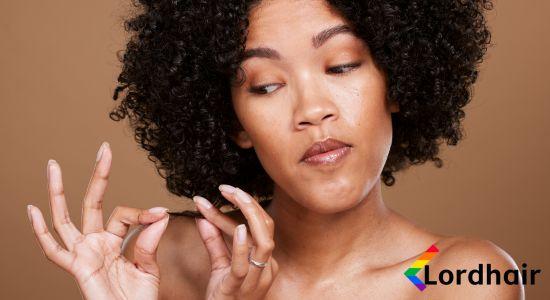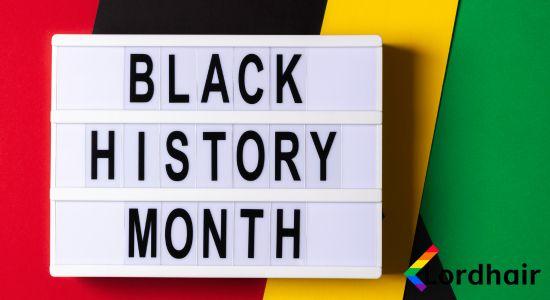What Is the Association Between Religion and Hair?
- Written by Ray Fernandez
- | Published Jul 2, 2023
- |
- 3 min read
 Listen to the full text
Listen to the full text
Hair is often seen as an important aspect of identity and self-expression. However, for many individuals, their religious beliefs also play a significant role in their hair choices and grooming practices. Does religion affect hair length? Let’s look at some facts to see if we can find any links between religion and hair.

Long Hair as a Symbol of Submission to Religion
In Christianity, hair is often seen as a symbol of one's submission to God. For example, 1 Corinthians 11:14-15 poses "Does not the very nature of things teach you that if a man has long hair, it is a disgrace to him, but that if a woman has long hair, it is her glory?" This has led to many Christian women choosing to keep their hair long and covered as a sign of their faith.
In Islam, hair is also seen as an important aspect of one's faith. Muslim men are often encouraged to grow their beards, as it is seen as a sign of masculinity and a way to emulate the Prophet, Muhammad. Women, on the other hand, are encouraged to cover their hair with a hijab as a symbol of modesty and piety
In Sikhism, hair is seen as a gift from God and is therefore not to be cut or shaved. Sikh men and women often wear turbans to cover their uncut hair, as a sign of their faith and commitment to their beliefs.
In Judaism, hair is often seen as a symbol of one's commitment to God. For example, during the time of the Old Testament, it was forbidden for priests to shave their heads or beards. Today, many Orthodox Jewish men still follow this practice and grow their beards and sidelocks (payot) as a sign of their faith.
My recent blog on gay men and black women just came to mind and now I'm wondering if Rastafarian is a religion ...
Spiritual and Cultural Movement of Hair
I've been told by a close friend that Rastafarianism is a spiritual and cultural movement that originated in Jamaica in the 1930s. It is often associated with reggae music, dreadlocks, and the use of marijuana. However, there is much debate about whether Rastafarianism is a religion.
Rastafarianism is based on a belief in the divinity of Emperor Haile Selassie I of Ethiopia. Rastafarians believe that he is the Messiah and that he will one day lead them back to Africa. They also believe in the importance of living a natural and simple life, rejecting materialism and consumerism.
Some argue that it is simply a cultural movement or a way of life, rather than a religion with a defined set of beliefs and practices.
However, others argue that Rastafarianism does meet the criteria for being a religion. It has a clearly defined belief system, a set of rituals and practices, and a community of followers who are united by their shared beliefs.
You may also be interested in:
- Is there a link between your hairline and personality?
- The history of wigs in the LGBTQ+ community
The History of Dreadlocks

Dreadlocks are a popular hairstyle that involves the matting and twisting of hair into long, rope-like strands. While they are often associated with Rastafarianism and reggae music, the history of dreadlocks can be traced back to ancient civilisations around the world.
One of the earliest known examples of dreadlocks can be found in ancient Egypt. Mummies dating back to 2000 BCE have been found with dreadlocks, which were often styled with beads and other ornaments. It is believed that dreadlocks were worn by Egyptian priests and were seen as a symbol of their connection to the divine.
Dreadlocks are also a common feature in Hinduism, particularly among the sadhus or holy men. They believe that their long, matted hair represents their spiritual journey and their commitment to their faith.
Today, dreadlocks are popular among people of all backgrounds and cultures. While they may still carry some cultural and spiritual significance for some, they are also seen as a fashion statement and a way to express one's individuality.

From ancient Egypt to modern Western culture, dreadlocks have been worn by people of different faiths and backgrounds. Religious or not, hair has different meanings and associations, and the style of hair or its condition of it continues to be a popular and distinctive hairstyle to people.
Whilst Lordhair caters to black men through their range of man weaves, they can't create dreadlocks.
Association Between Religion and Hair: Final Thoughts
Hair plays a vital role in many religious beliefs and practices. Whether it's the length, style, or covering of one's hair, hair often serves as a symbol of one's faith and commitment to their beliefs.
The question of whether or not Rastafarianism is a religion is a complex one. While some argue that it is simply a cultural movement, others believe that it meets the criteria for being a religion. Ultimately, the answer may depend on one's personal beliefs and definitions of what constitutes a religion. It appears that no matter what length the hair is or whether it's covered or uncovered, there are certainly links between religion and hair.
Whatever your hair needs, Lordhair has you covered. Covered in more ways than one! Be sure to check out the Lordhair range of men's hair systems and women's wigs.
Ray is a guest contributor to our blogs with an extensive background in PR. Ray loves to discuss his own hair system journey by offering insights into wearing and styling a hair system as well as providing observations on the role of hair in sexual and gender identity from an LGBTQ+ perspective. Be sure to check out more of Ray’s Diversity content.



